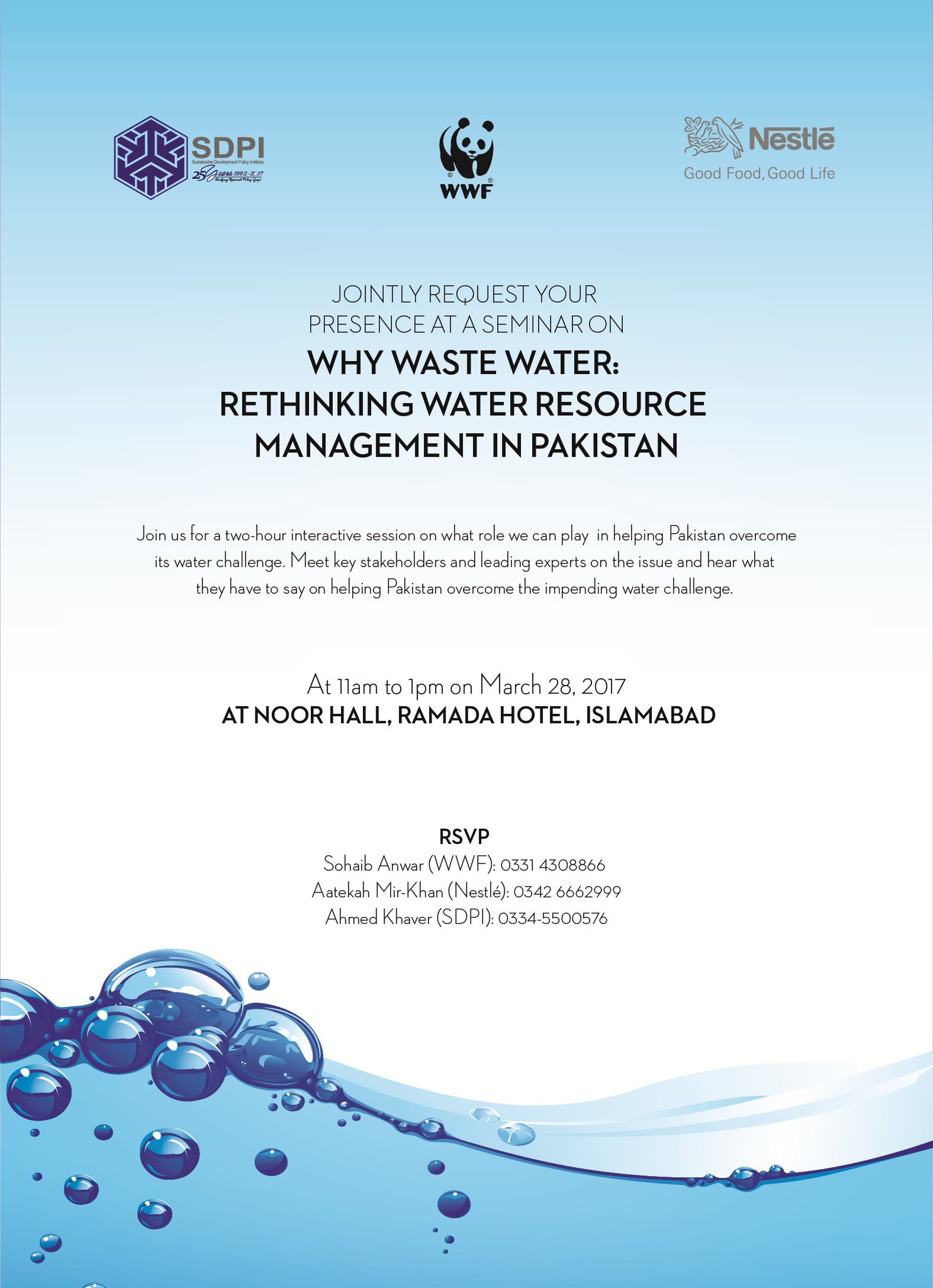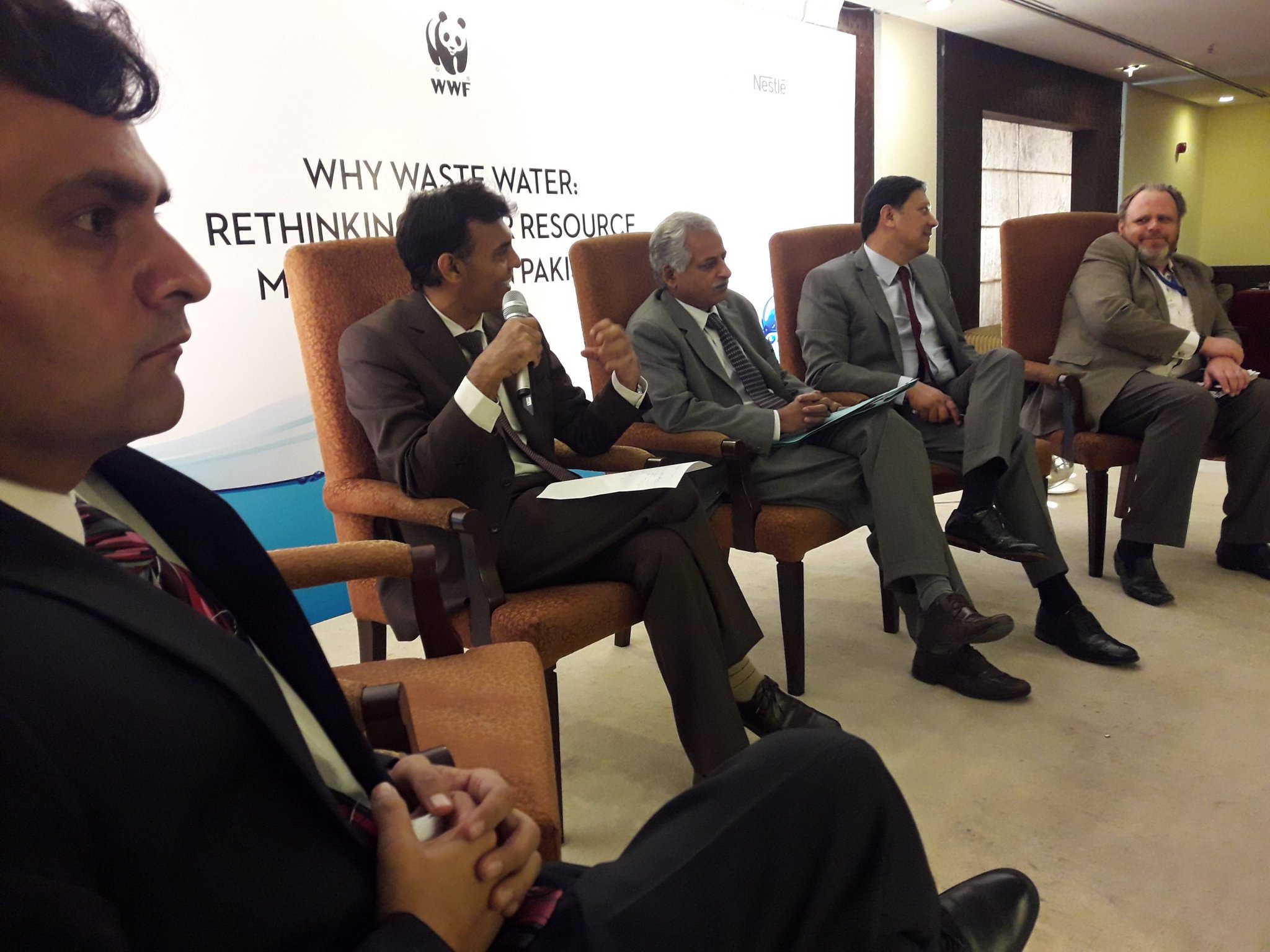Seminar on Why Waste Water: Rethinking Water Resource Management in Pakistan


The seminar titled 'Why Waste Water: Rethinking Water Resource Management in Pakistan' was organized in Islamabad with the collaboration of Sustainable Development Policy Institute (SDPI), World Wide Fund (WWF) and Nestle Pakistan. The current status of water related issues were discussed while focusing on the conservation of water in the region.
While moderating the session on Why Waste Water: Rethinking
Water Resource Management in Pakistan, Dr. Imran Khalid Research fellow at SDPI,
stressed on the lack of implementation strategies for effective management and
conservation of fresh water resources in our region. We have laws and
regulations for water management but they are not being implemented properly.
Head of Cooperate Affairs at Nestle Pakistan, Mr. Waqar
Ahmed, emphasized on the water by addressing its application in agriculture
which consumes 60% of the entire water of our country. Nestle and government of
Punjab are collaborating in providing subsidies to the farmers to initiate drip
irrigation system in Pakistan. He also highlighted that Nestle Pakistan is
working with different agricultural universities as a part of their CSR and
internship program.
Chairman Pakistan Council of Research in Water Resources
(PCRWR), Dr. Mohammad Ashraf stressed on the need of water pricing for the
proper management and conservation of water resources. He shared the research
being conducted by PCRWR in identification of water quality in 24 cities
showing 80% of the drinking water sources to be contaminated. He also discussed
another study which showed the massive reduction of dissolved oxygen in river
Sutlej thus has lead to no chances of aquatic life to survive. He also despised the lack of political commitment regarding clean water
supplies in Pakistan. He also emphasized on the role of academia in water
conservation as none of the universities in Pakistan are running exclusive
programs on water conservation. While sharing the success story of rain water
harvesting in Pakistan, he said that Cholistan is in better situation to tackle
with water shortage due to rain water harvested ponds.
Dr.Peter Wingle from Quaid-e- Azam University discussed the issues
related to policies relate to water resource management in Pakistan. He said
that water subsidies are important yet it needs to be addressed with care as
too much use of water in upper riparian’s leads to the pollution of water in the lower riparian’s.
Representative from World wide Fund (WWF), Mr. Rab Nawaz
proposed that we don’t require big initiatives and expensive technologies for
the conservation of water rather there is need to build interdependence
alliance governments and related institutes.
He also said socioeconomic challenges, fluctuating productivity and lack
of addressing the role of women in water management is aggravating the issue of
water utilization. He highlighted the lack of water treatment practices which
are contaminating our good assets, wetlands and ecosystems.
During the question answer session, the representative from Environmental
Protection Agency, Ms. arzana said that we are too late to conserve our water
resources and have already entered the era of water pricing. While discussing
the quality of water, she said there are hardly any fresh water sources which
are safe to drink therefore there is strong need to implement research by
academia on practical grounds.
Executive Director Sustainable Development Policy Institute,
Dr. Abid Suleri highlighted the issue of water pricing and the strong
dependence of Pakistani exports and production system on water. He
emphasized the need
of introduction of mechanisms of water recycling in the region by pointing of
the lack of sustainable water management practices and lifestyles of the
people.
The session was concluded on the notion to take collaborative measures of civil societies, academia and cooperate sector to conserve water and promote sustainable water management practices.



Comments
Post a Comment